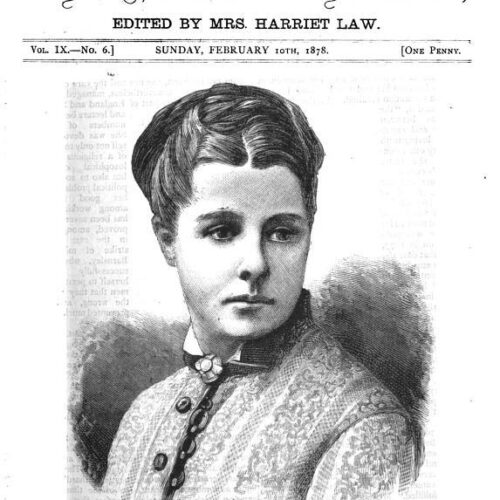

The object of Secularism is the promotion of human happiness in this world… [The Secularist] believes the surest way of obtaining heaven is to make one here. All his hopes rest in nature and in man.
G.H. Reddalls, ‘Principles and Aims of Secularism’ in The Secular Chronicle, 1 August 1872
The Secular Chronicle was launched in 1872: ‘a monthly journal established to promote free enquiry into social, political, and theological questions, and as a record of freethought progress.’ Though only in existence for seven years, under the editorship of George Reddalls, and later Harriet Law, it played its part in the secularist scene of the 1870s, spreading news and ideas, celebrating freethinkers past and present, and advocating a humanist viewpoint.
The first issue of the Secular Chronicle was published in August 1872. Its columns, wrote the editor, would be ‘thrown open for the discussion of all questions affecting the well-being of society, especially of those subjects which are excluded from the English press by the “despotism of custom”:’
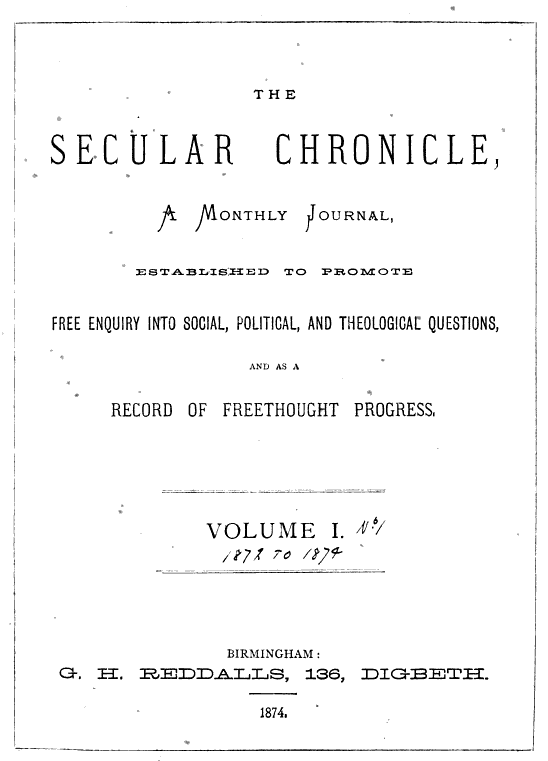
As advocates of an unpopular cause, we do not expect to escape censure, neither do we desire it. When our opponents praise us, we shall begin to suspect we are neglecting our duty. We shall pursue an open and independent course, and shall reap our reward in the consciousness of the fact that we are doing something, however little, to help on the cause of Freethought progress.
The Chronicle’s founder and first editor was G.H. Reddalls of Birmingham, the author of Modern spiritualism: an examination and exposure (1875). The inaugural issue of the Chronicle contained an article by Reddalls on the ‘Principles and Aims of Secularism’. ‘The object of Secularism,’ he wrote:
is the promotion of human happiness in this world. Knowing nothing of, and expecting nothing from, a future life, looking upon death as “the undiscovered country, from whose bourne no traveller returns,” the Secularist is content “to do the duty nearest to hand.” He does not regard this life as a probation state, “a vale of tears,” where man must fast and pray to fit himself for happiness in another life. He believes the surest way of obtaining heaven is to make one here. All his hopes rest in nature and in man…
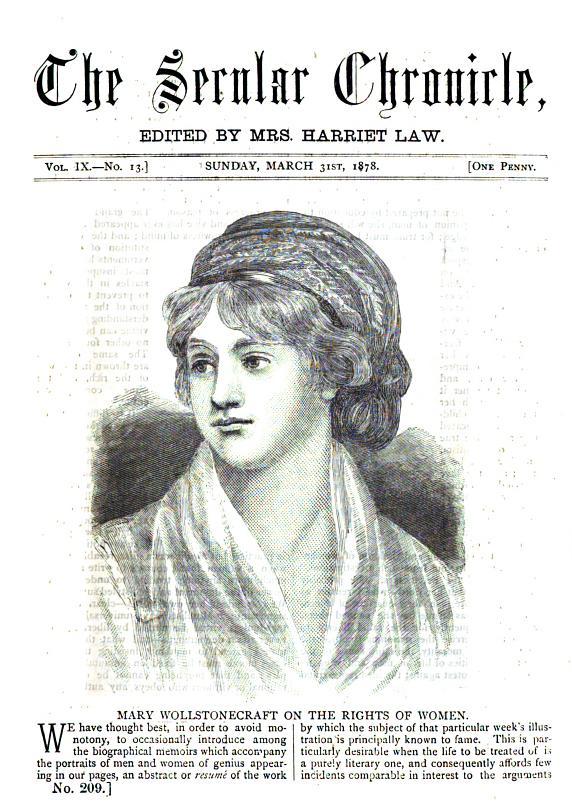
Following the death of Reddalls in 1875, prominent secularist speaker Harriet Law took over the publication. Her first issue, in January 1876, declared:
Owing to the decease of lamented friend, Mr. G. H. Reddalls, it was considered necessary to dispose of the plant and copyright of the Secular Chronicle. As opportunity offers there will be delineated in the pages of the Secular Chronicle the brilliant wit of a Voltaire, the sterling common sense of a Paine, the uncompromising courage of a Carlile, the patient endurance of a Hetherington, the scathing sarcasm of a Southwell, the loving kindness of an Owen, the profound logic of a Mill, with the glorious poesy of a Pope, a Byron, and a Shelley. The highest and broadest kind of co-operation, as embodied in the communistic system of Robert Owen, will be maintained, as calculated to promote the mutual benefit of all—to destroy those monstrous combinations of caste and capital which enslave the many to the few, and mar the true peace and purity of the whole human family.
Law edited the paper until November 1878.
The Chronicle’s final editor, from December 1878 until March 1879, was George Standring (1855–1924). Standring was a popular secularist speaker, writer, printer, and editor, who had also served as Secretary of the National Secular Society. The last issue, in which Standring warned that ‘the very existence of the paper may be said to be trembling in the balance,’ was published on 1 March 1879.
The Secular Chronicle, Volumes 1-2 (1872-74)
The Secular Chronicle, Volumes 9-10 (1878-79)
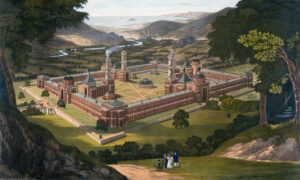
Socialism emerged, in the early decades of the nineteenth century, as a humanist ideal of universal emancipation – the ideal […]
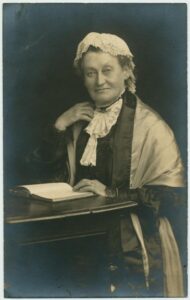
Dr Alice Vickery was a humanist, physician, and devoted champion of women’s reproductive rights. Her tombstone inscription remembers her as […]
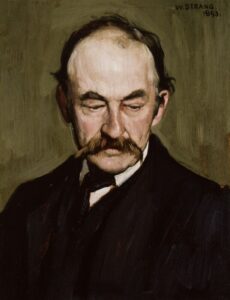
Thomas Hardy was an English novelist and poet, renowned for his apparently bleak outlook, but finely tuned to life and […]
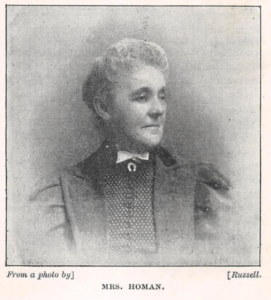
Ruth Homan was an educationist, women’s welfare campaigner, and one of the founding members of the West London Ethical Society […]